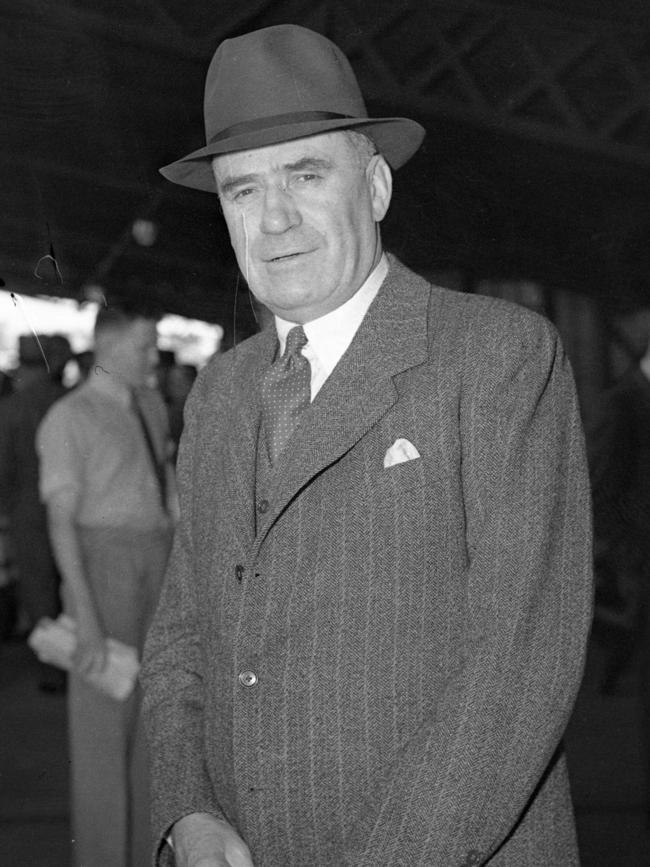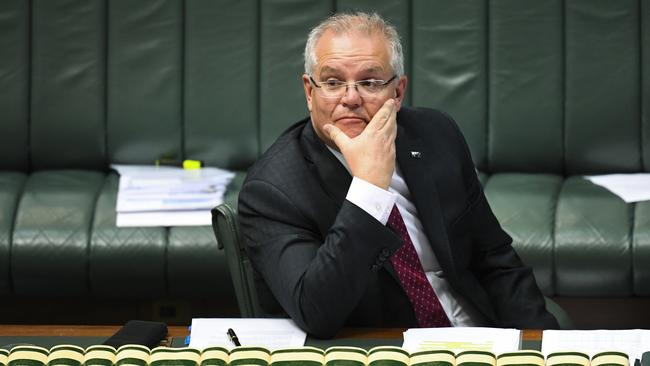When scrutiny becomes enemy of the state

If you think journalists are the people who control information, you’re in for a big surprise. Never before has the state collected more data on citizens, employed more message merchants to shape the news agenda or constructed a mighty firewall to stop information about its activities reaching the public. We are no match for the power of governments. In a democracy, our job is not to be a mere vehicle for the executive or bureaucracy, to use our platforms to carry official statements to a micromanaged populace. That’s what life is like in China and, as controversial as it may sound to some, that’s not the liberal, open, free country Australians want to live in. We are in the disclosure business. Not because we are gossips, dobbers or scolds but because the task of scrutiny is necessary to make sure the state itself is not above the law.
That line — the law — is changing, often due to difficult and dangerous circumstances. But also because in a territorial game the scrutinised, as a class, always want to do their work on their own terms. Their lives are much easier if they never have to explain why taxpayer money gets wasted, they want to spy on citizens or people are locked up without cause. Ignorance has never been a solid basis for citizenship or a method to get the best out of elected governments.
- READ MORE:Morrison tested on secrecy laws |The secrets governments keep | When politicians decide the news | Agencies’ media laws ‘flawed’ | State actor likely to stay secret | AFP top brass must be in loop
Scott Morrison says no one should be seeking a “leave pass” to be above the law, but that is exactly what has happened with the rise of the national security state. Politicians and officials, whether by accident or design, have constructed a “trust us” apparatus. But the enemy is not journalism per se. The enemy they’ve constructed is any scrutiny at all — not only do they want to keep our eyes off their actions and inactions, they ultimately don’t want you to know what they are doing.
We’ve seen to our horror that censorship at all costs becomes septic. Keith Murdoch, father of Rupert, the founder of our parent company News Corp Australia, was a war correspondent in World War I. On April 25, 1915, Australians landed at Anzac Cove as part of the Gallipoli mission. Australia’s then prime minister, Andrew Fisher, did not learn about this assault until May 8; no justification had been given for the use of our troops. Thousands were killed, yet the censors — four levels of them — ensured our political leaders and public were given only sanitised accounts.

By August questions were being raised here, so Fisher asked Sir Keith, on his way to a London posting, to travel via Turkey to report on the campaign.
“It is undoubtedly one of the most terrible chapters in our history,” Sir Keith wrote in the extraordinary missive now known as the Gallipoli Letter. “Your fears have become justified.” He cabled the 8000-word letter — variously a report, eulogy and angry pamphlet — to Fisher, who sent it to the British prime minister, who circulated it among his cabinet. Weeks later, the Dardanelles campaign was abandoned, British general Ian Hamilton was relieved of his command, then First Lord of the Admiralty Winston Churchill resigned and was banished, and the peninsula evacuated months later.
As grandson Lachlan Murdoch recounted in the 2014 Sir Keith Murdoch Oration, the Gallipoli Letter was “Australia’s boldest declaration that our nation had a right to know the truth”. He declared “censorship should be resisted in all its insidious forms”. That spirit informs our mission and membership of a coalition to improve the climate for reporting the truth to the Australian public. Journalism is always in a struggle with the forces of censorship. But, as Sir Keith showed, when our freedoms as a people — our ability to make reasoned judgments, to be informed, to know — are under threat, we must have the courage to act. Little by little, under the pretence of national security, the ability to know the truth has been eroded.

As a news organisation we do not think we can do as we please: there are constraints of defamation, sub judice and privacy. Yet secrecy is increasingly being declared in matters that do not pose security risks but, rather, the acute embarrassment of the stuff-up or bad idea. Give the “classified” stamp a rest; put strong definitions around laws, not hold-all terms such as “special intelligence operations”. Change the onus of proof in court so agencies need to show why they should gain a search warrant. Let’s be clear, this creep of secrecy has been a bipartisan folly. Waving around Monday’s “censored” newspapers as a badge of purity or as a weapon to shame an opponent does not wash. Yes, the Coalition has fortified the firewall, often in the name of terror threats. But it has long been a joint enterprise with the opposition through 75 pieces of national legislation. Shamefully, when Labor was in office in 2013, it proposed an Orwellian body with wide-ranging powers to oversee all of the media, the public interest media advocate. It was, as we argued then, the most draconian attack on press freedom in this nation in peacetime.

We don’t seek to operate above the law or get a leave pass, Prime Minister. We want to change laws that give the custodians of state power — ministers, the heads of defence forces, security agencies and departments — the ability to do as they please and evade scrutiny. The public wants to know what’s being done in its name and expects us to step up. Trust in institutions, including media, is falling; part of that is due to poor performance, press infighting and competition, and “gaslighting” by those who want us to stop asking questions. Our work is out in the open, around-the-clock, subject to 360-degree review by critics and competitors. Readers expect us to get to the truth and can easily choose another source for their news; we suffer financially and reputationally when we make mistakes. But what about the state? You can’t sack it. But you can make power better and accountable. That is the essence of our democracy. The news media plays its role when it single-mindedly pursues the truth. We want laws that promote transparency and limit the state’s tools of secrecy and control. We trust an informed people, not governments, as the ultimate guardians of our freedoms.

